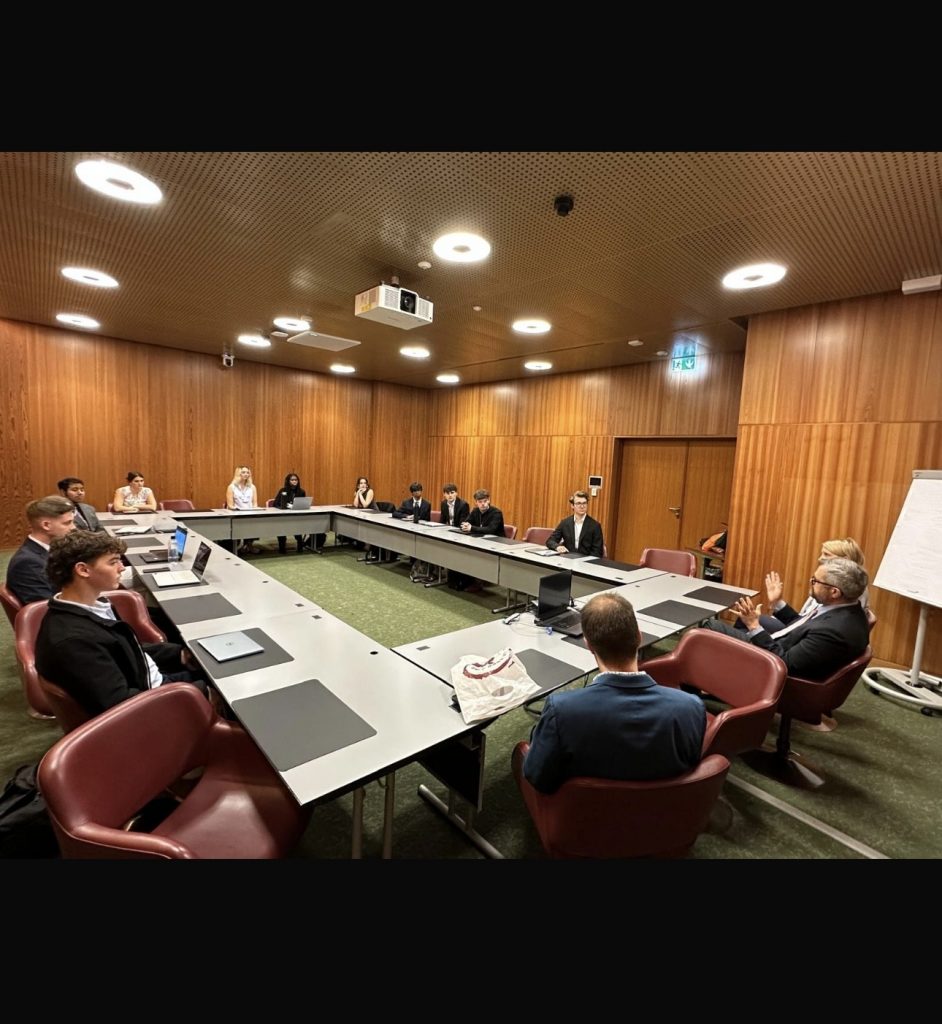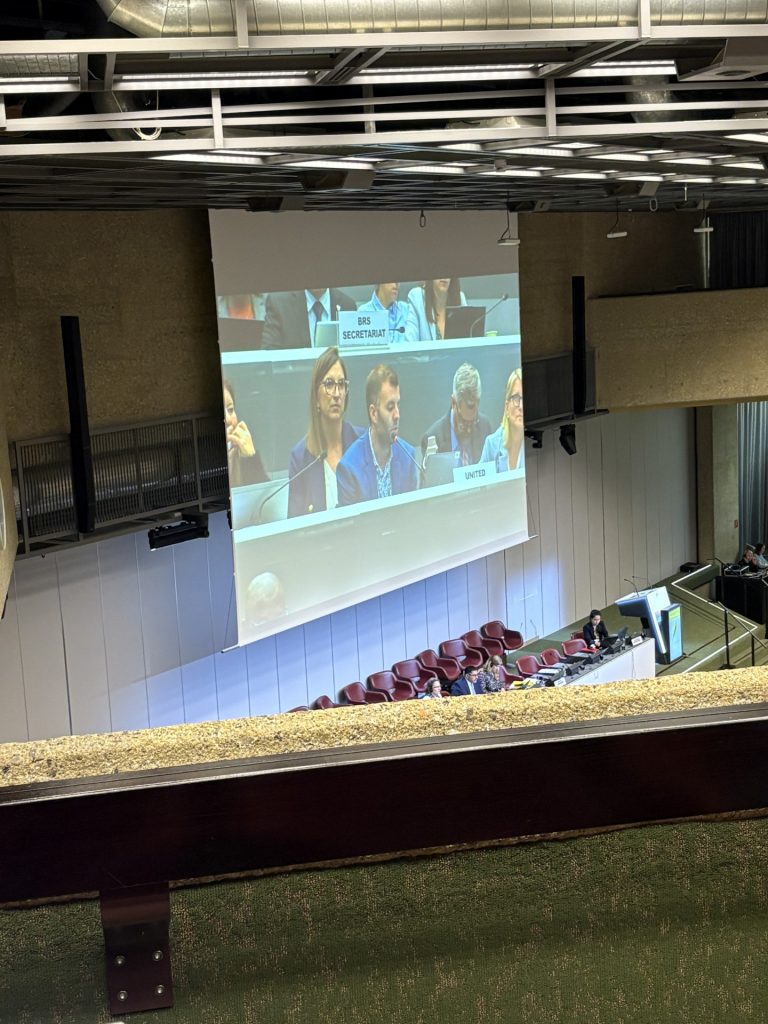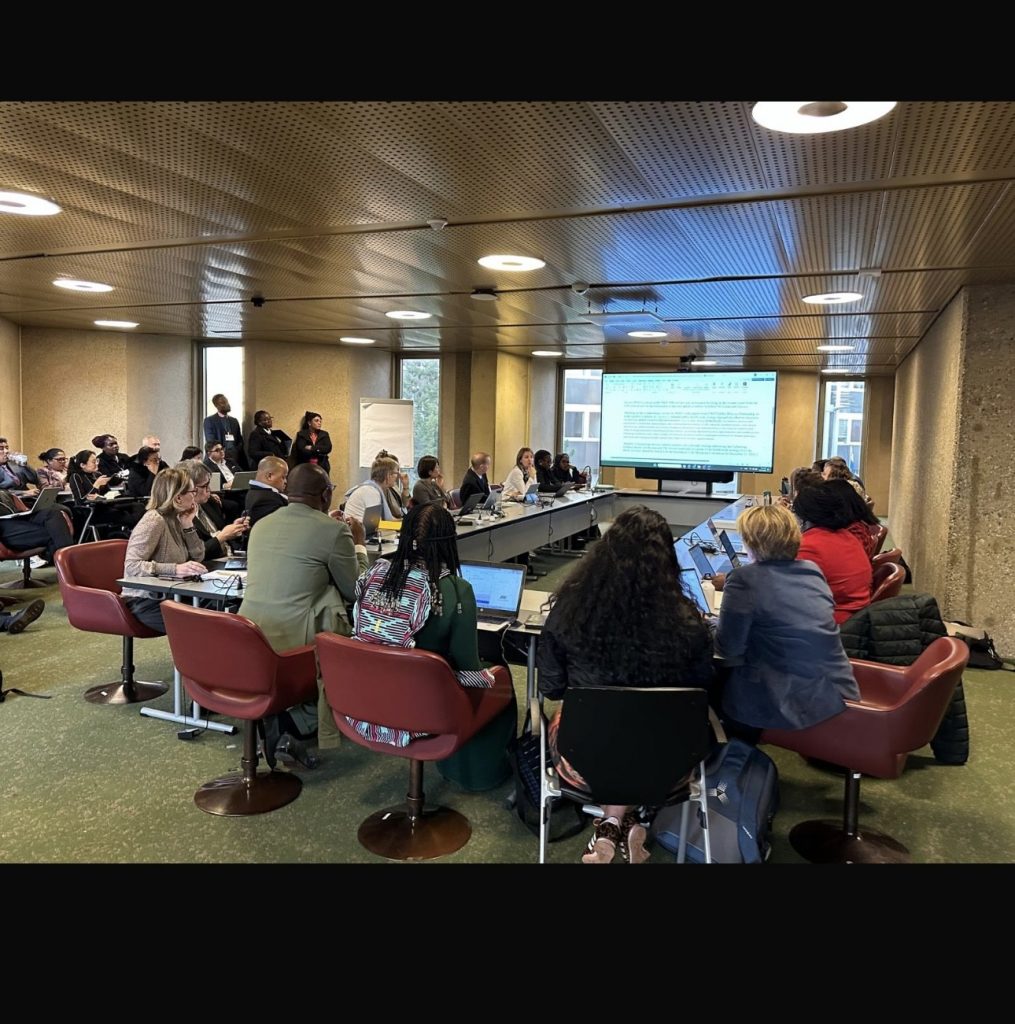Introduction
This morning, after sightseeing around the city of Geneva, we headed home to get ready for the day. Today, we had a meeting planned with the United States delegation for the Minamata Convention during the lunch break.
United States Delegation Meeting
At the meeting with the United States Delegation, we began by learning about each delegate’s role and what they hoped to accomplish at the Minamata Convention. After their introductions, we shared a bit about our course and why we were attending the conference. Shortly after the meeting began, we were asked not to take notes since the conversation was considered off the record, but it was still incredibly informative. We learned about each delegate’s career path and how they ended up in their current positions, which I found especially interesting because none of them initially studied or started out in the fields they now work in. It was impressive to see how their careers evolved into high-level roles within the State Department. The delegates also discussed what the United States hopes to achieve at the convention and reflected on the progress made during the first two days. They expressed confidence in the direction of the negotiations but acknowledged that there is still a lot of work to be done. They mentioned that the U.S. is pushing hard toward other parties, believing that meaningful agreements can be reached that will benefit everyone. Andrew Clark, the Acting Head of Negotiations, explained that during negotiations, the U.S. recognizes that every country has valid reasons for the positions they take. He shared a story about a delegate from Colombia who said they appreciate working with the U.S. because they understand and respect those differing perspectives. After hearing about their experiences, goals, and negotiation strategies, we asked as many questions as time allowed and received thoughtful, detailed answers. Meeting with the U.S. delegation was a fascinating experience that gave us a firsthand look at how international conventions operate and how our country approaches diplomacy and negotiation.

Afternoon Plenary Session
After the US delegation meeting, most of the class went on to tour the Place de Nations; meanwhile, some of us stayed for the afternoon plenary session. During the plenary session, I found it interesting to see how many different perspectives came up during the negotiations. Some countries were focused on making the goals more realistic or securing financial support for developing nations, while others wanted to refine technical details, like mentioning artificial intelligence and transparency in the text. What stood out most to me was how much discussion centered on changing just one word from “requests” to “invites.” It seemed small at first, but it turned into a real debate about meaning, tone, and obligation. In the end, the change was adopted, showing that even the smallest edits can symbolize progress and cooperation when it comes to international decision-making.

Informal Negotiations
After the plenary, I was sitting in, along with some others, an informal negotiation. In these negotiations, the focus is less on the concepts or laws behind the proposals and more on the exact wording of each draft. Each paragraph is read, and the meeting leader goes around asking each country whether they approve it as is or want to propose changes. Any suggested edits must be agreed upon by all parties, or they are set aside for further discussion. Surprisingly, even a single word can spark intense debate because of its potential meaning or legal implications. From what I’ve observed, major players like the United States, the European Union, and the United Kingdom tend to dominate the conversation, offering more suggestions and debating openly, likely not just from their resources and influence, but also their experience in these negotiations. Much of the discussion revolves around word choice, from the subtle differences between UK and US English to concerns that certain wording could allow a country to ban products like skin-lightening creams. Countries also sometimes suggest edits to accommodate others or build consensus. Overall, the negotiations are meticulous, and over time, I’ve noticed the United States increasingly guiding the flow of the meeting.

Formal Words
Overall, today was another great experience at COP-6. From learning more about the United States and its negotiation tactics from US delegates, to sitting in on an informal negotiation setting, today was full of eye-opening and incredible learning experiences. I am looking forward to seeing the progress made tomorrow.